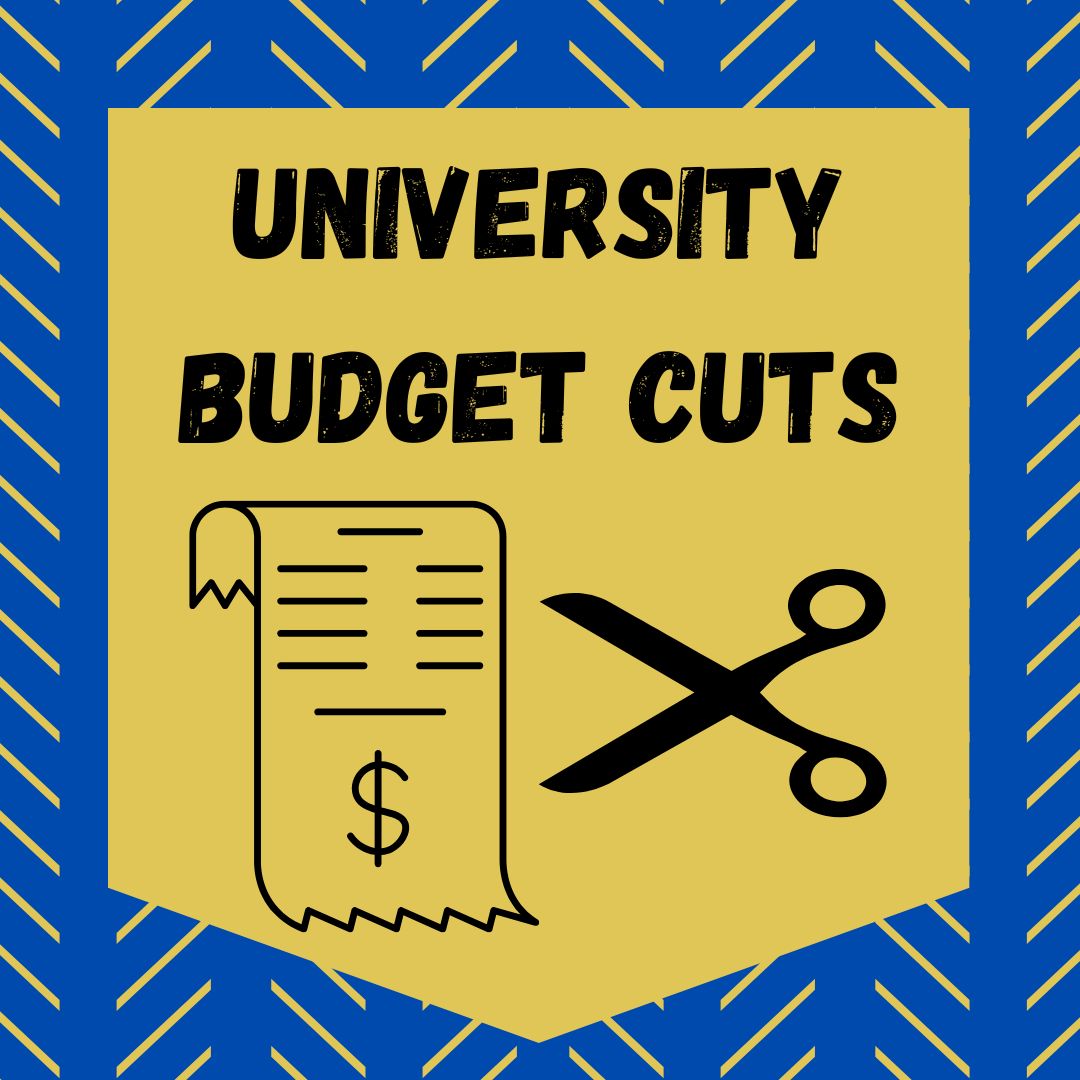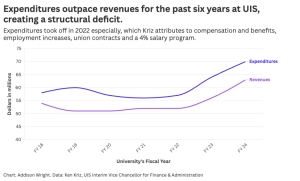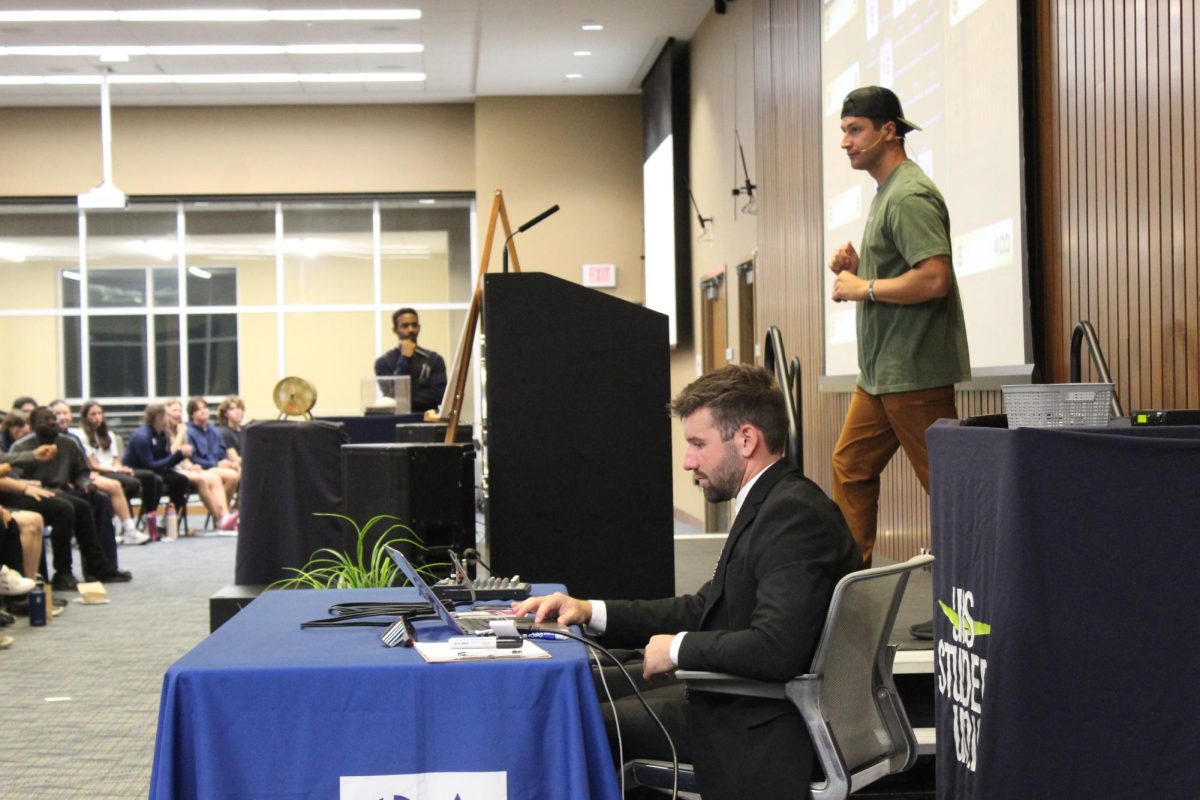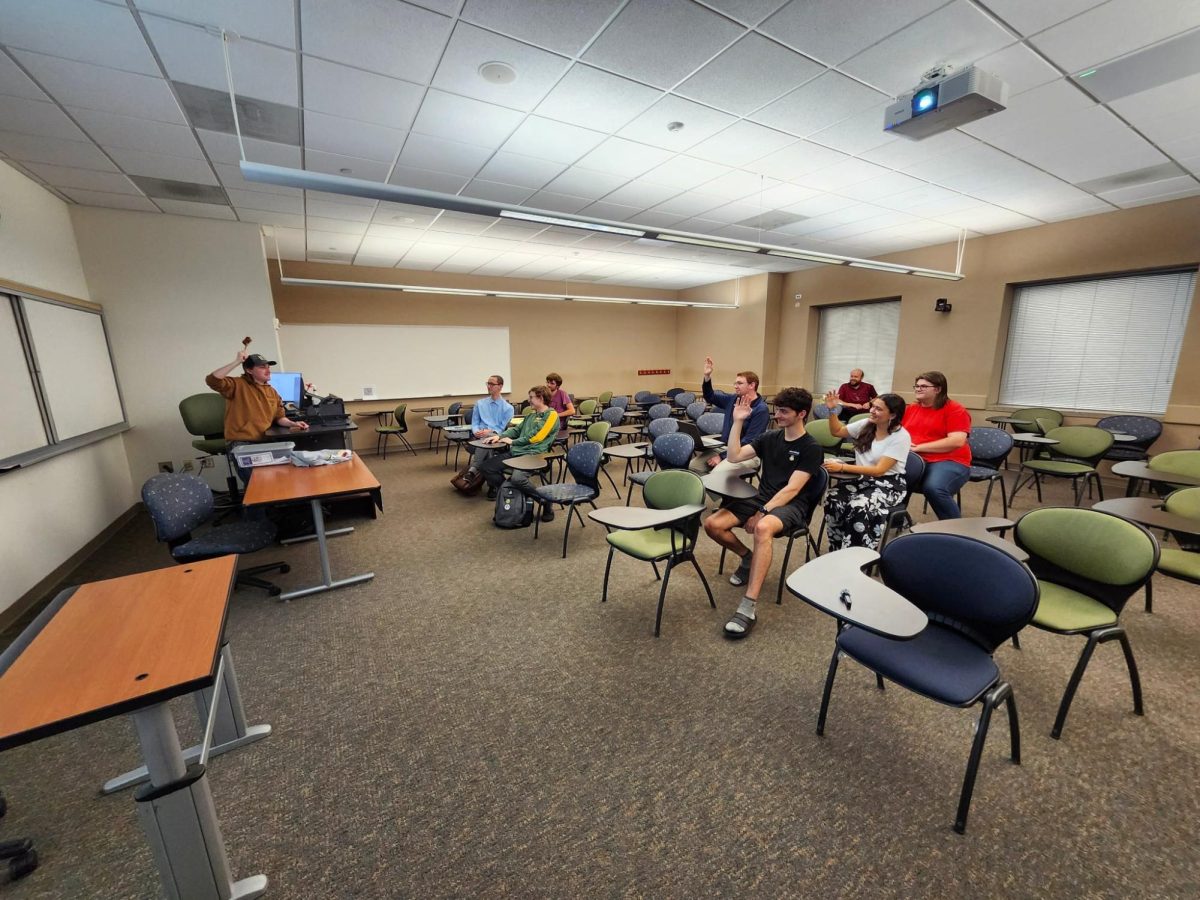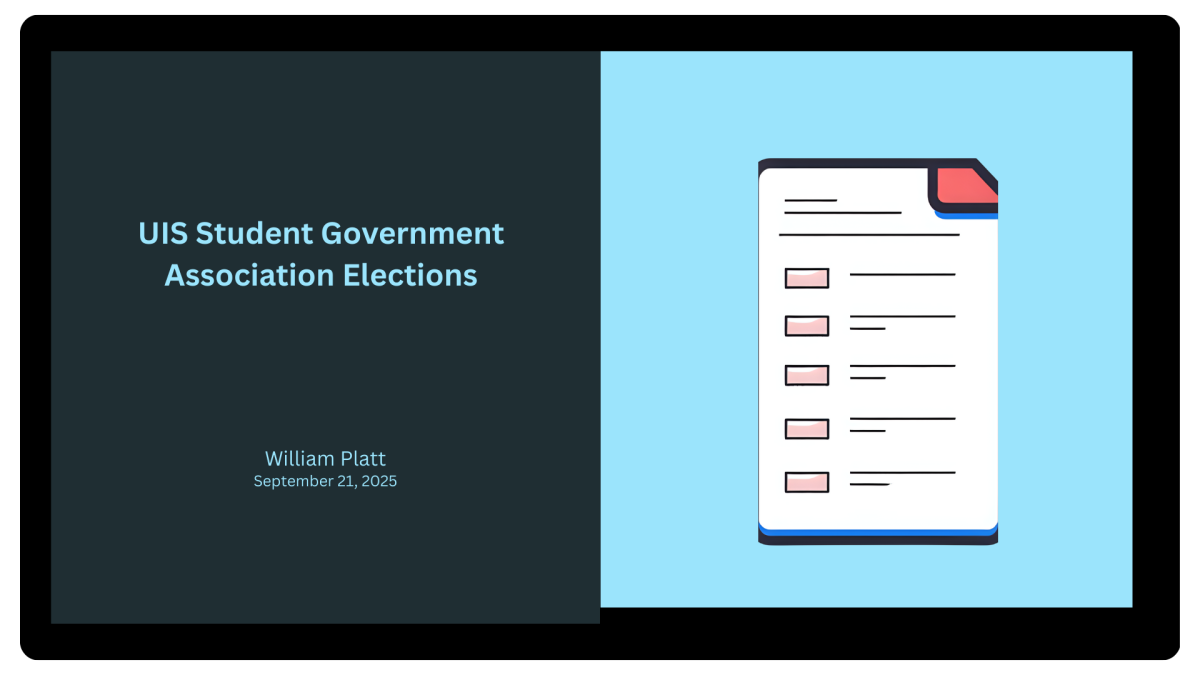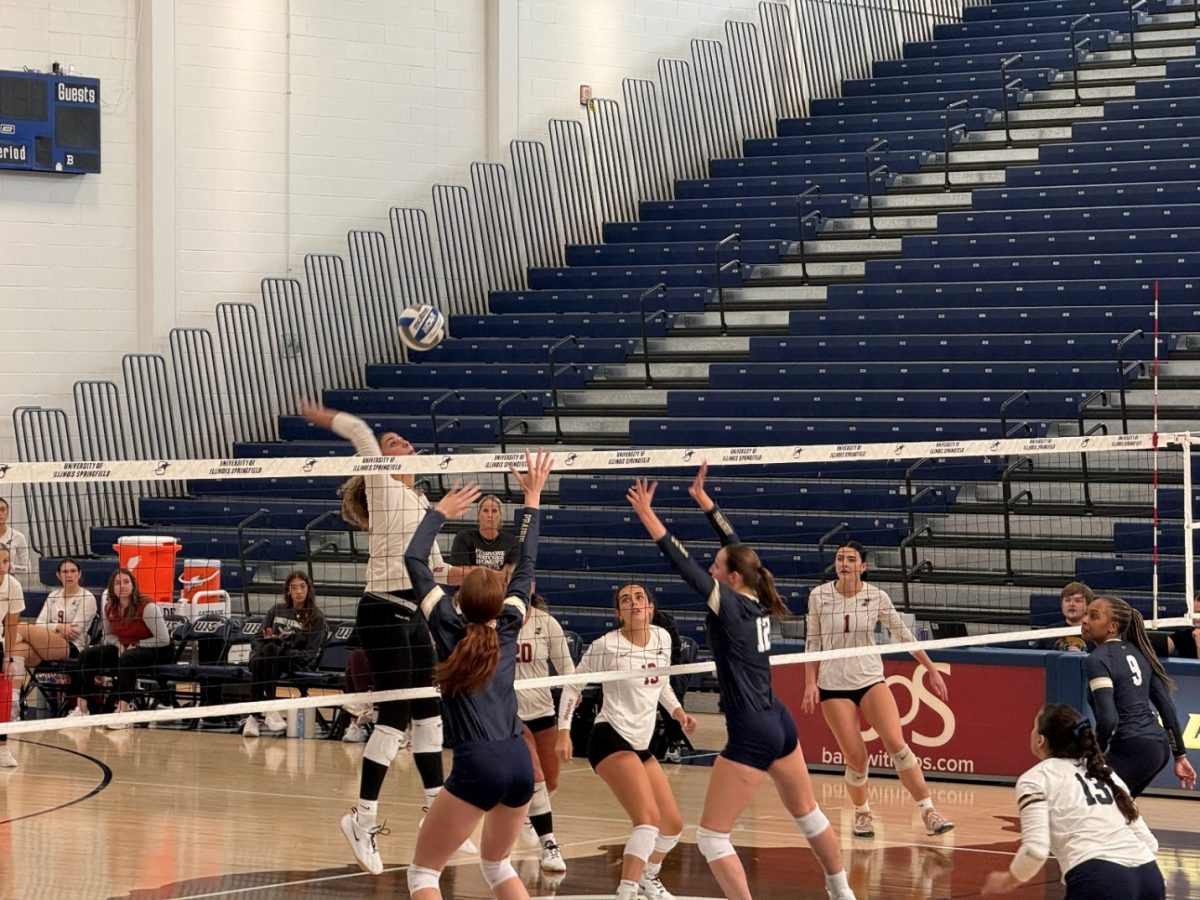The University of Illinois Springfield will review programs and staff for potential cuts after facing multi-million budget deficits for the past decade.
UIS does not bring in enough students or receive enough support from the state to cover costs, according to Ken Kriz, interim vice chancellor for finance and administration at UIS. The university faces a projected $9 million deficit for the budget year that ends June 30, 2025.
“The future vitality of this university depends on us recognizing this moment and executing smart data-driven decisions that will right our ship and put us on a more sustainable and successful path both financially and operationally,” UIS Chancellor Janet Gooch said in a meeting to staff on Oct. 22.
Last year, UIS administration promised the University of Illinois System to reduce the deficit to zero by fiscal year 2029, according to Gooch and Kriz at the staff meeting.
UIS has faced annual multi-million deficits since 2014, but in 2022, expenditures took off and have increased by 25% since that year, according to Kriz. He attributes this spike to increases in compensation and benefits, employment, union contracts and a 4% salary program.
“This is a blatant misrepresentation of faculty salaries as a proportion of the larger budget.” Dr. Kristi Barnwell, Associate Professor of History said, when asked to comment on Kritz’ statement.
Dathan Powell, Associate Professor of Theater, also stated that faculty salaries should not be considered at fault for the University’s budget issues, “The institution’s costs should factor in equitable increases to faculty salaries that will insure they are able to remain at the university. The deficit points to a lack of funding from the U of I System to maintain the integrity of the teaching mission and vision of UIS.”
Along with increased expenditures, the University’s revenue has also increased, but not by enough, according to Kriz.
An 11 percent enrollment growth last fall helped UIS cut an $8.5 million deficit down to $6.5 million for the budget year that ended June 30, 2024, but flat enrollment this fall puts UIS back on track to end the budget year in June 2025 with a $9 million deficit.
“In April we thought the deficit was going to be about flat, that the deficit would be about what it was last year,” Kriz stated.
Kriz says student enrollment contributes to about 60 percent of university funds, and to break even, the university would need about 5,800 students enrolled. This fall, the university has about 4,600 students. Gooch says her goal is to have 5,000 students next fall.
“When we’re down on-campus students that also affects housing and meal plans, which are revenue sources, which help provide those services for students,” Vickie Cook, Vice Chancellor for Enrollment and Retention Management, said at the Oct. 22 staff meeting.
Cook says the unexpected dip in enrollment was due to students having issues accessing the Free Application for Federal Student Aid. She anticipates continued FAFSA challenges and this year’s application to be delayed to December.
Kriz is also worried the university won’t receive enough state appropriations, which contributes 35% of the university’s revenue.
“The state budget is not looking particularly rosy,” said Kriz. “Without the state money, we’d basically have to raise the tuition so high that no student would want to come here.”
Academic Portfolio Review Underway
To reduce the deficit, Gooch says the university needs to conduct an academic portfolio review that will produce a program prioritization report by Jan. 31.
“This will support our decision-making, resulting in a diversified portfolio of compelling and relevant academic programs to meet today’s market demands,” said Gooch.
Last spring, UIS hired an outside consulting agency to assist with the review. The university will pay the agency UPCEA a maximum of $38,154, and the contract extends through June 2025.
For the review, UPCEA is using labor data, competitive data, and internal metrics, to evaluate current UIS programs. The agency will identify potential new program areas based on the education required for entry into the top regional occupations.
“We will be using the results from UPCEA as one source of information for the academic portfolio review,” said UIS Provost Brandon Schwab.
A task force of four professors will inform the parameters for the review and met for the first time on Nov. 1. They plan to finish their report by the end of January, according to Lynn Fisher, Chairperson of the Department of Sociology/Anthropology.
“Hirable” curriculum
Gooch emphasized at the October staff meeting that she wants to build programs while cutting, which means changing university priorities.
“To me, this means we must provide them with opportunities to be best prepared for the ever-changing demands of the labor market and employability,” said Gooch.
UPCEA said in February that hireable skills are leadership, AI-related skills, cybersecurity, data communication, web development, and learning paths like professional certificates.
Some worry the humanities and liberal arts aren’t seen as hireable and won’t be as prioritized.
“I’m firmly convinced that the knowledge and skills and perspectives that come out of the liberal arts are a great foundation for any career but sometimes we have to work to make that clearer to students,” said Fisher. “I think the university can and should continue to communicate that value and not take a too narrow perspective on what it means to be employable.”
Schwab says there is no set employability standard and that a mix of specific abilities, technical skills, specialized knowledge, and generalized soft skills are important skills for the job market.
“Our goal is to make sure our graduates leave UIS with the skills and abilities to excel throughout the rest of their lives, no matter what they choose to do,” said Schwab.
Different than past plans
The university has had deficit reduction plans in the past, but Schwab says hiring freezes and mid-year budget cuts make this year’s plan different.
Gooch implemented the hiring freeze in September, and any hiring requests are reviewed by the strategic staffing committee, which includes Gooch and other administrators.
“Units should think creatively regarding vacancies, such as shared positions, redistributing and re-prioritizing work, et cetera rather than reposting vacancies outright or creating new positions,” said Gooch.
Gooch has also asked departments to propose 4% mid-year budget cuts, which her cabinet will review.
And she plans to roll out a voluntary separation plan for faculty next semester, conduct a space utilization study to optimize campus facility use and review scholarship distribution and athletic expenditures.
“I realize this feels like a lot. It is a lot and will require a lot of attention,” said Gooch.
Kriz is hopeful a bill in the next state legislative session could bring in additional funding for the university.

